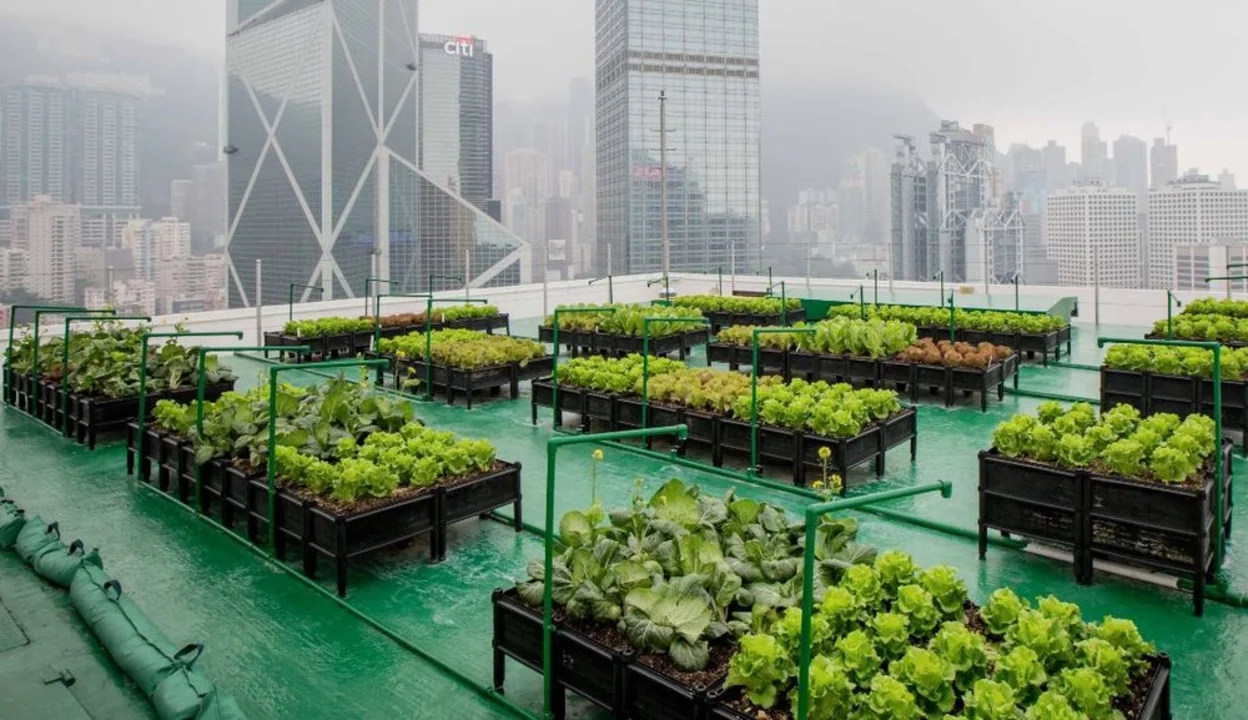Exploring the Benefits of Urban Agriculture: Why Urban Farming is a Sustainable Option
Urban agriculture is becoming increasingly popular as a way to bring food production closer to home and to provide fresh, healthy food to city dwellers. But why is urban agriculture a sustainable option? There are numerous benefits that make it a viable and attractive option for many people.
Local and Sustainable Food Production
The most obvious benefit of urban agriculture is that it provides locally grown food. By growing food in the city, it cuts down on the need to transport food over long distances and reduces environmental impacts related to food production. Locally grown food also has the potential to be more sustainable, as urban farmers can utilize organic and regenerative agriculture practices.
Reducing Food Waste
Urban agriculture also has the potential to reduce food waste. By growing food on-site, it can be harvested when it's ripe and consumed immediately, reducing the amount of food that is wasted in the supply chain. Urban farms can also help to divert food waste from landfills, using it as compost for the gardens instead.
Creating Community
Urban agriculture can also be a great way to bring people together and to create a sense of community. It provides a space for people to come together and share in the experience of growing food. Community gardens also provide a sense of ownership and pride in the local food system, as people can see the fruits of their labor.
Increasing Access to Healthy Food
Urban agriculture can also provide access to healthy, nutritious food to city dwellers. Many urban areas have limited access to healthy foods, and urban agriculture can help to fill this gap. It can also provide education about healthy eating habits, as well as job opportunities for those who may not have access to traditional employment.
Reducing Carbon Footprint
Finally, urban agriculture can help to reduce the carbon footprint of cities. By reducing food transportation and utilizing renewable energy sources, urban agriculture can help to reduce emissions related to food production. Additionally, urban farms can help to capture carbon by sequestering it in the soil, further reducing emissions.
Understanding the Impact of Urban Agriculture: How Sustainable Agriculture Can Help Cities Thrive
Urban agriculture is a form of sustainable agriculture that has been embraced by cities around the world. By growing food in urban areas, cities are able to reduce their environmental impact, provide fresh and nutritious meals to residents, and create jobs and economic opportunities. But what is it about urban agriculture that makes it sustainable?
Reduced Environmental Impact
Urban agriculture helps to reduce cities’ environmental impact by decreasing the need for food to be transported from rural areas. This reduces the amount of fossil fuels used for transportation and cuts down on the amount of air pollution created by these vehicles. Urban agriculture also uses fewer resources than traditional farming, as it uses fewer water and energy resources and relies on organic fertilizer instead of chemical-based fertilizers.
Health Benefits
Urban agriculture also provides cities with fresh and nutritious food. By growing food in urban areas, residents have access to fresh fruits and vegetables that are not only healthy, but taste great too. This can help to improve public health, as cities with access to fresh produce have been shown to have lower rates of obesity and other diet-related diseases.
Economic Benefits
Urban agriculture also provides economic benefits to cities. Growing food in urban areas creates jobs and provides economic opportunities to local residents. Local farmers markets also help to boost the local economy, as they provide a place for local businesses to sell their products. Additionally, urban agriculture can increase the value of real estate in cities, as residential and commercial properties near urban farms tend to be more desirable.
Conclusion
Urban agriculture is a form of sustainable agriculture that provides cities with a number of benefits. It reduces cities’ environmental impact, provides fresh and nutritious food to residents, and creates economic opportunities for local businesses. For these reasons, cities should consider embracing urban agriculture as a way to create a more sustainable and prosperous future.
